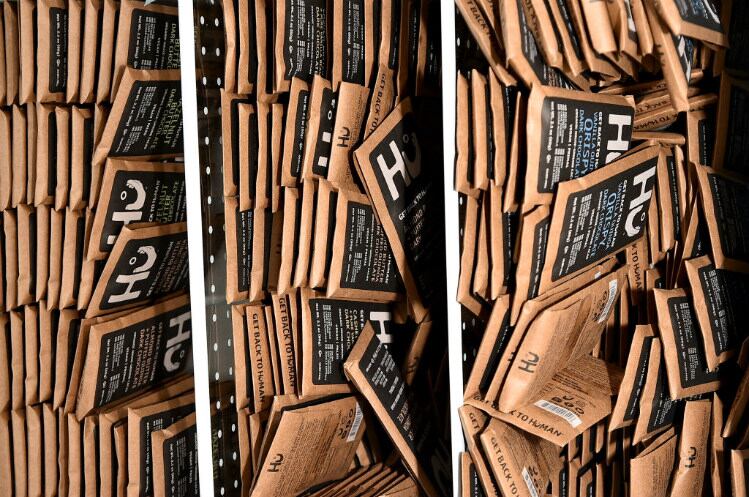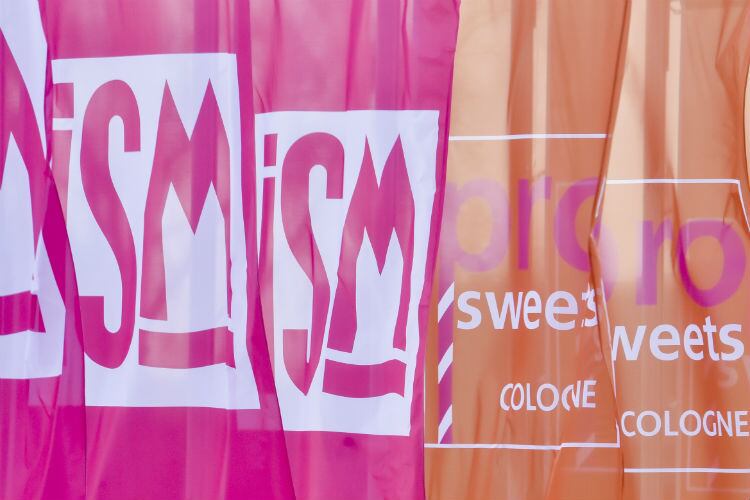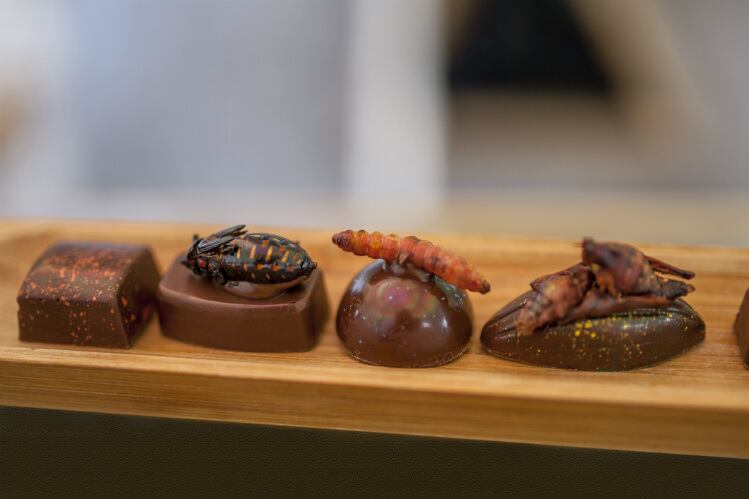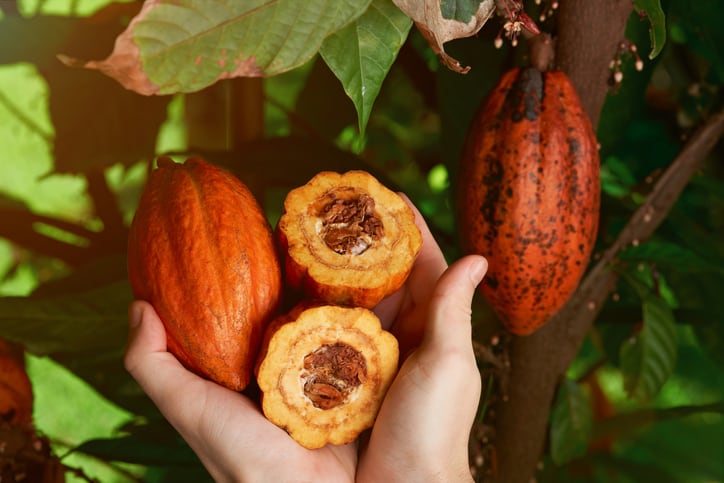Hu uses unrefined coconut sugar – always organic, it says – in its premium chocolate bars, which typically retail for around $7 for 2.1oz.
Jordan Brown founded Hu with his sister Jessica Karp and her husband Jason in 2012, first as a retail kitchen in New York City rooted in the ethos of ‘getting back to human.’ For them, that means ‘paleo-inspired foods with simple, real ingredients.’
"Many modern food products (and their ingredients) are not aligned with optimal human health, whether they use highly refined, industrially processed sweeteners or chemically-treated artificial sweeteners that were never part of the human diet until 20 or 30 years ago," Hu told ConfectioneryNews.
Such sweeteners include grain-based ones like brown rice syrup, or aspartame, cane and beet sugar. Refined sugars also are a no-no, as the production process strips them of ‘any minerals that may actually be beneficial.’
We are not fans of sugar alcohols, and we plan to stick to our ingredient guardrails.
In eschewing these ‘poor-quality’ options, which also include brown sugar and various sugar substitutes like aspartame, Hu has turned to dates, figs, and tubers such as sweet potato.
When fruit or vegetable-based alternatives do not make sense, the brand would use sweeteners found in nature: organic honey, maple syrup and unrefined organic coconut sugar.
Every bar sticks to the basics. The Orange Dream Vanilla Cashew Butter bar, for instance, contains only six core ingredients: organic cacao and cocoa butter, vanilla bean, orange oil, cashew, and the aforementioned coconut sugar. The basic ‘salty’ dark chocolate bar clocks in at only four ingredients: cacao and cocoa butter, coconut sugar, and sea salt.
“Jordan, Jessica and I started Hu because we wanted a place where we could trust and understand every ingredient in our food,” co-founder and chairman Jason H. Karp said in April, when Mondelēz announced it would invest in the growing brand.
Jordan Brown, Karp’s brother-in-law, explained, “Our perpetual goal is to marry great taste with no weird ingredients, and we’re big believers that using these simpler ingredients can make people feel and perform better than they thought possible.”
Disagree? Then DIY
The Karp family started Hu Kitchen as a foodservice establishment but quickly realized that not every product or ingredient they needed met their demands.
In searching for a ‘Hu-compliant’ baking chocolate, the siblings deemed existing dark chocolate too harsh. They describe the resulting ‘Hu-style’ chocolate as ‘mild’ and ‘warmer-toned.’
These bars – now available at Whole Foods in every US region – are also free from soy (or any emulsifier, for that matter) and dairy.
Asked how they differentiate themselves from the litany of 'better-for-you' options out there, especially as the fine chocolate market grows, Hu insisted the taste and quality of its products superseded all else.
"Even though there are a lot of brands out there, producing a great tasting vegan product with no weird, artificial ingredients or refined sugars is very hard and took us a lot of time and effort to perfect," the company said.
Coconut Sugar
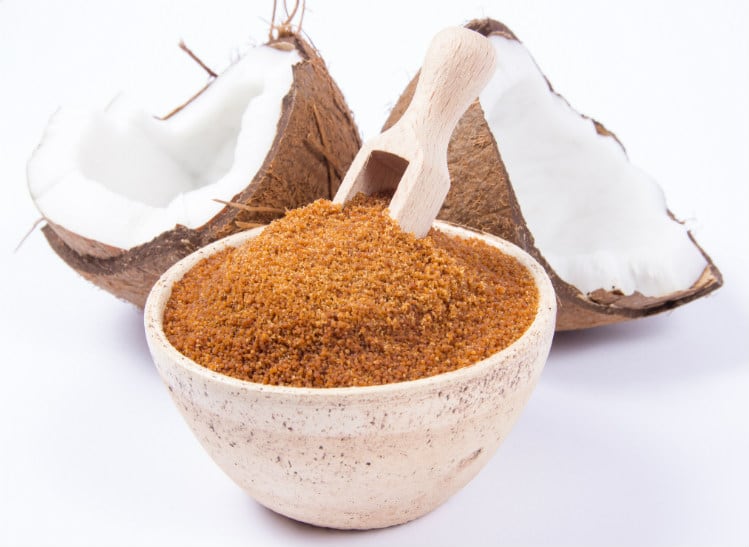
Coconut sugar (also known as palm sugar) is made from the sap of the coconut palm tree and resembles raw cane sugar’s crystals.
Its sucrose level usually falls between 70 and 80%, according to Elaine Gardner of the British Dietetic Association, and its calorie count matches that of standard table sugar (16 calories per teaspoon).
A ‘fairly pure form of sugar,’ this type of sweetener is minimally processed, thus retaining natural vitamins and minerals: iron, zinc, calcium, potassium, fiber and antioxidants.
Nonetheless, Gardner warns, coconut sugar can still contribute to obesity, diabetes and heart disease: “The nutrients in coconut sugar are likely to have a minimal effect unless you eat large amounts, when any benefit will be outweighed by all the sugar you’re eating.”
Mondelēz – and nutritionists – see value
Through its SnackFutures venture arm, Mondelēz staked a minority claim in Hu Master Holdings (the umbrella company to both the retail shop and the CPG brand). Chief growth officer Tim Cofer said in April that the Karp family fit snugly into ‘the convergence of key growing consumer trends.’
Choosing the right partner
Hu told us it scrutinized potential partners in search of certainty "that our vision would be honored" and that any deal "would allow for us to reach more consumers with our mission even faster and without compromise."
In choosing Mondelēz, Hu was ultimately swayed by the parallels between its own vision and that of SnackFutures.
"We believe their resources, strengths and the progressive viewpoint of the company's leadership will help us accelerate positive change for healthier products that meet the very high bar we have set for ourselves."
“Building on its initial success in chocolate, we believe there’s an exciting opportunity to continue expanding the Hu proposition into a broad health-focused snacking platform across categories,” he said at the time.
“With an in-house test kitchen and insights lab, they have a unique ability to quickly test and learn,” a concept Mondelēz has embraced full-throttle in recent months. The CPG giant launched a Kickstarter campaign for two upcycled snack products made from cacao pulp – the first proprietary brands to come out of SnackFutures’ innovation hub.
Hu admitted that its partnership with Mondelēz was still in its early stages, but see progress in 'several areas.'
"While their core focus has historically been more conventional snacking, they really walk the talk in terms of where they are investing and innovating now," Hu said.
The growing brand embarked on this global expansion journey in May 2018, when Sonoma Brands, an investment firm focused on upstart food brands, led a Series A funding round. Founder Jon Sebastiani contended that Hu would “change brand standards across a variety of product verticals by delivering its rigorous ingredient identity and transparency.”
Dr Mark Hyman, founder of The UltraWellness Center in Massachusetts and author of Food: What the Heck Should I Eat?, also invested in Hu last year. Describing its chocolate as a permissible indulgence, he said, “This product is a healthy treat people can look for without the added guilt typically associated with chocolate, or products with refined sugar.”
For its part, Karp said Hu would use these investments to “accelerate the conversation around the need for more vegan, paleo and unprocessed foods and bolster our platform as a mission-driven health and wellness business.”

